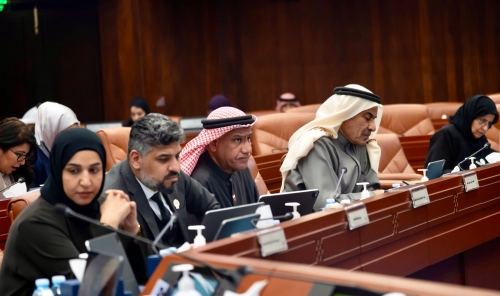Banks Unchequed : MPs Push for Partial Payments on Bounced Cheques
TDT | Manama
Email : editor@newsofbahrain.com
Banks should honour cheques partially, even if an account lacks the full amount, according to new proposals under parliamentary review.
MPs are also calling for a ban on blank cheques as a form of credit and restrictions on freezing joint accounts when a holder dies.
A draft law set for discussion in Parliament on Tuesday states that banks must pay whatever funds are available on a cheque unless the recipient declines.
The proposed changes, aimed at modernising commercial law, introduce fines of up to 10,000 dinars for misusing blank cheques, alongside measures to reduce disputes and enhance financial security.
Under the draft law, if a cheque is only partially covered, banks must issue a certificate confirming the settled amount, allowing the recipient to resubmit the cheque for the remaining balance. The Central Bank of Bahrain would oversee the gradual implementation of these provisions.
Protection for Joint Accounts
The amendments also prevent banks from freezing an entire joint account when one holder dies or is legally incapacitated. Instead, only the affected person’s share would be restricted until a designated heir is appointed, ensuring continued access to funds for other account holders.
Stronger Verification Rules
Stronger cheque verification rules are also included in the proposal. Banks would be required to approve verification requests if sufficient funds exist—whether for full or partial payment. Once verified, the cheque amount must remain frozen until it is cashed.
A bounced cheque typically results in penalties, legal action, or even criminal charges in many countries. However, some jurisdictions allow partial payments on insufficient funds cheques to reduce financial disputes and ease the burden on both issuers and recipients.
Ban on Blank Cheques as Financial Guarantees
A key provision is the ban on blank cheques as financial guarantees, which are commonly used in business transactions and personal lending. Issuing such cheques would result in fines ranging from 200 to 2,000 dinars. Those caught completing and submitting them for payment could face penalties of 10% to double the cheque’s value, with fines between 500 and 10,000 dinars.
Support from Key Institutions
Parliament’s Financial and Economic Affairs Committee has reviewed the bill and finalised its report, recommending approval. The Ministry of Industry and Commerce has supported the proposal, stating that it will help reduce cheque-related disputes and improve business transactions. The Central Bank of Bahrain has also backed the reforms, saying they align with government financial policies.
The Ministry of Justice, Islamic Affairs, and Waqf, along with the Bahrain Chamber of Commerce and Industry, welcomed the changes. However, the chamber questioned the role of the Consumer Protection Directorate in enforcing the law, arguing that cheque disputes—especially those involving businesses—should be handled by commercial and financial regulators. It also called for a broader review of cheque regulations to create a more comprehensive legal framework.
The parliamentary committee has confirmed that the draft law meets constitutional requirements and has recommended its approval.
International Practices on Partial Payments for Bounced Cheques
- France – Banks must honour a cheque up to the available balance in the account and issue a certificate for the unpaid portion.
- United Arab Emirates – Recent legal reforms decriminalised bounced cheques and introduced partial payment requirements.
- Saudi Arabia – The Saudi Arabian Monetary Authority (SAMA) mandates banks to partially honour cheques if full funds are unavailable.
- Lebanon – Central bank regulations allow banks to pay the available amount on a cheque and mark the remaining balance as unpaid.
- Morocco – The banking system enables partial payments on bounced cheques while ensuring legal protection for recipients.
Related Posts

